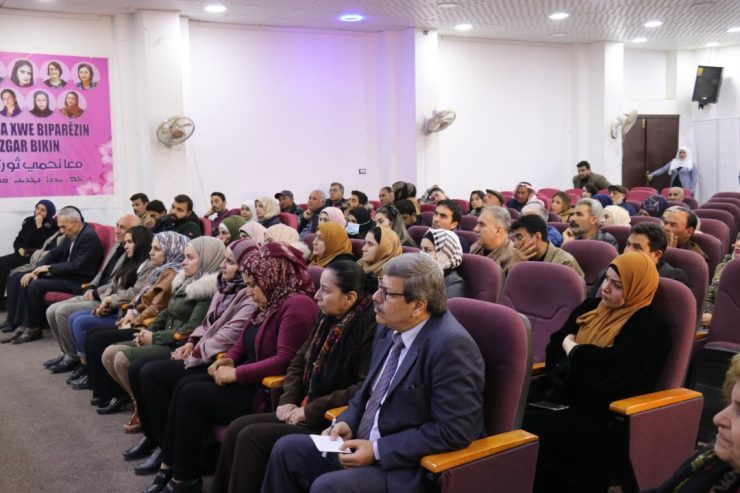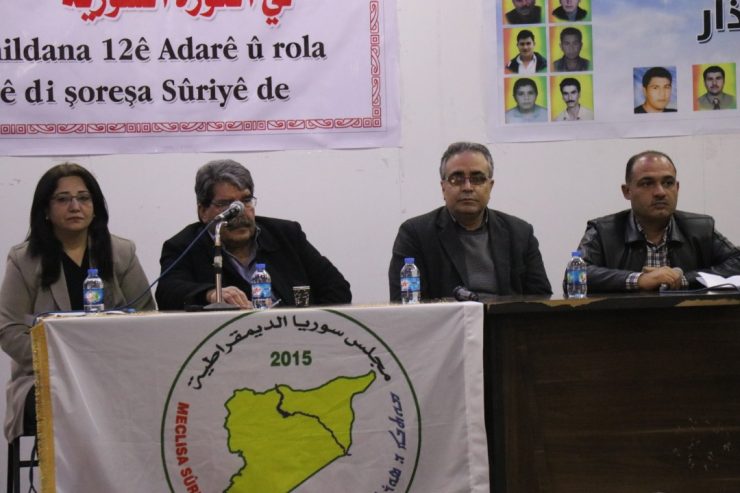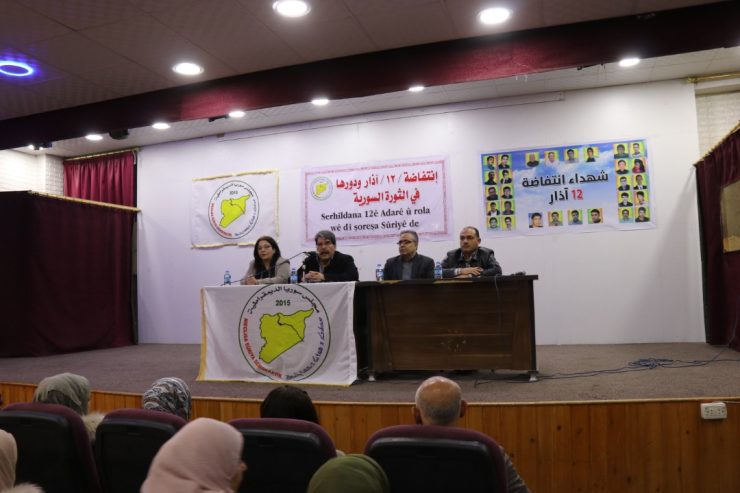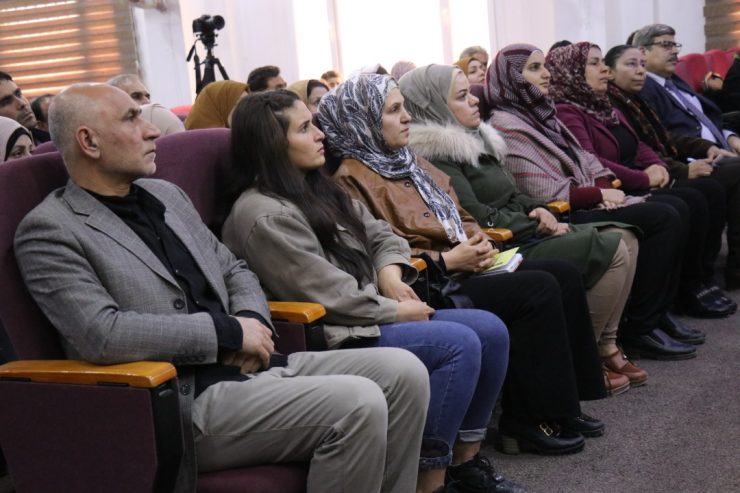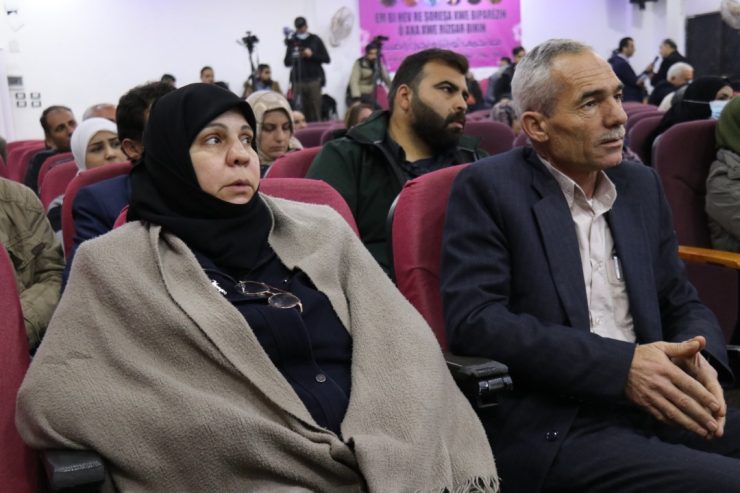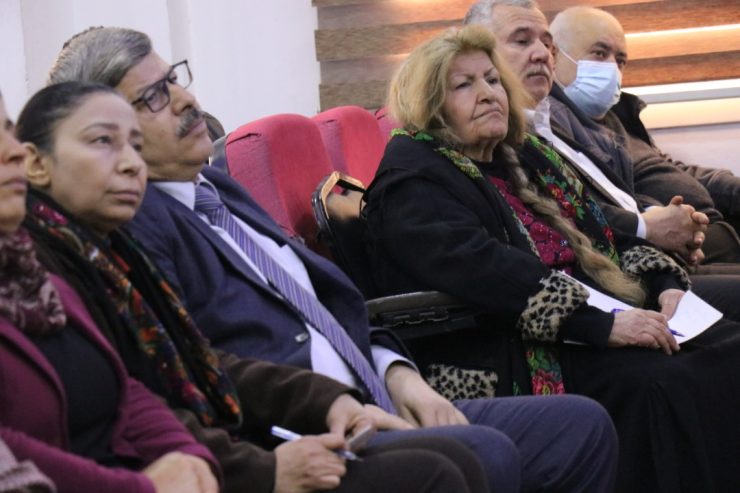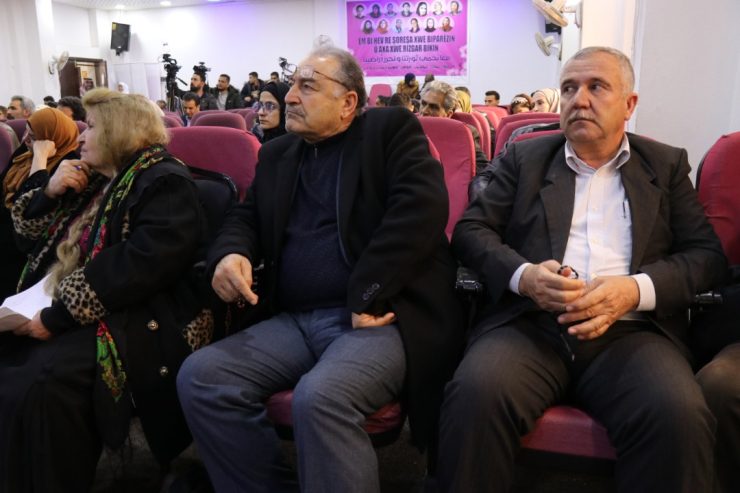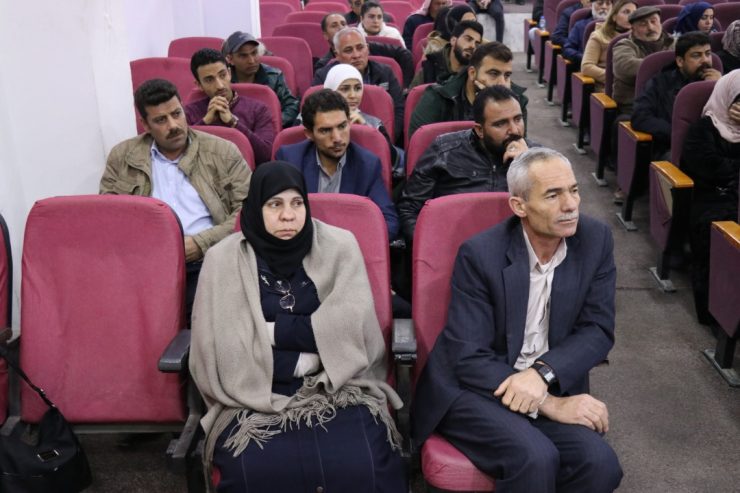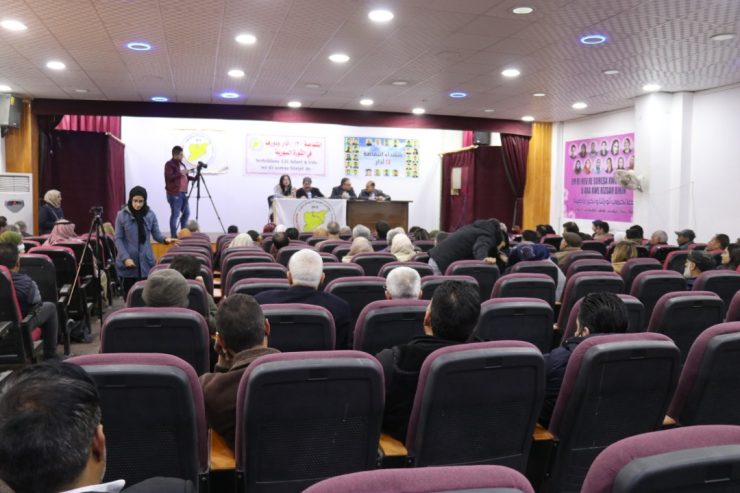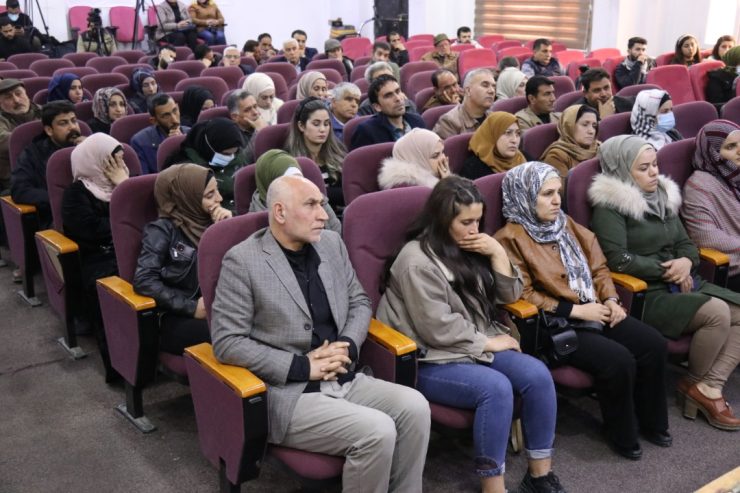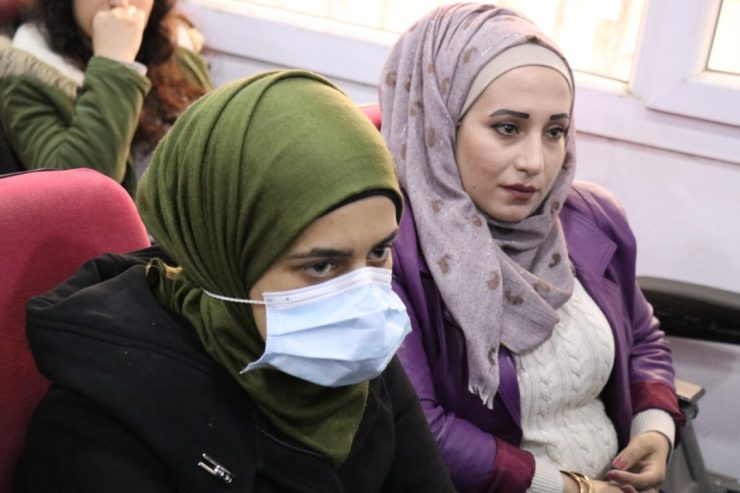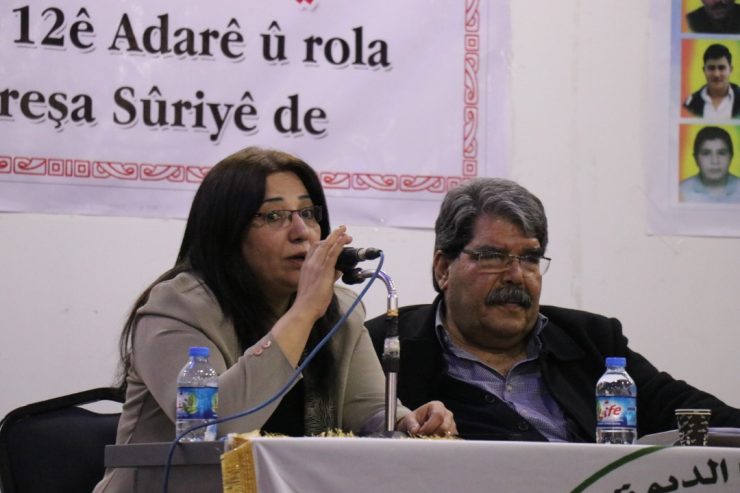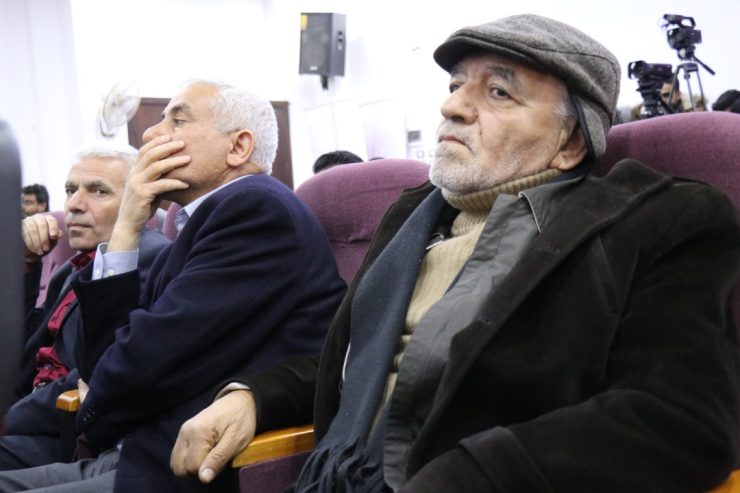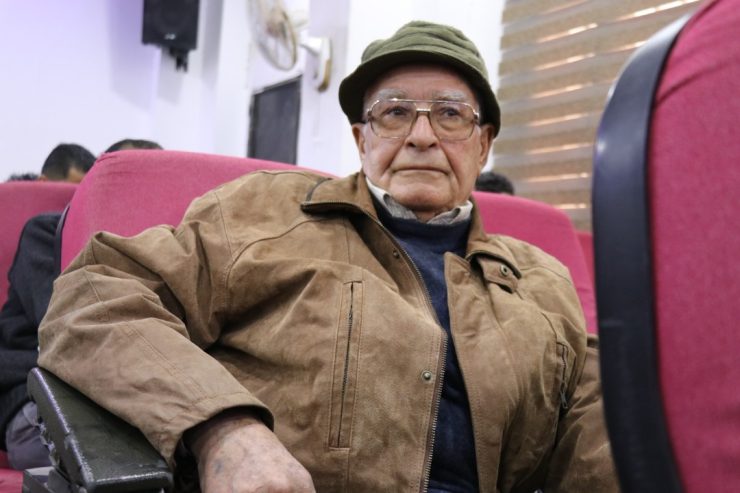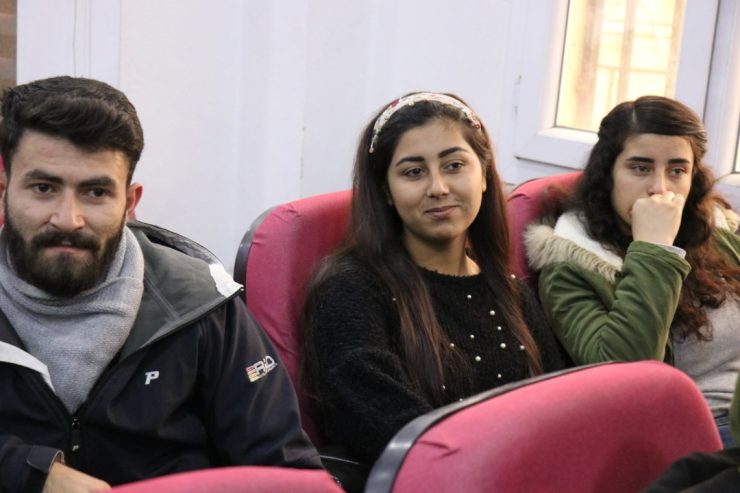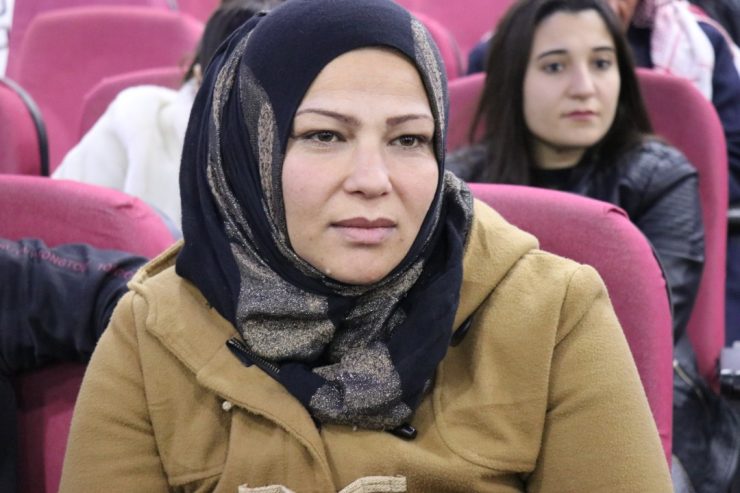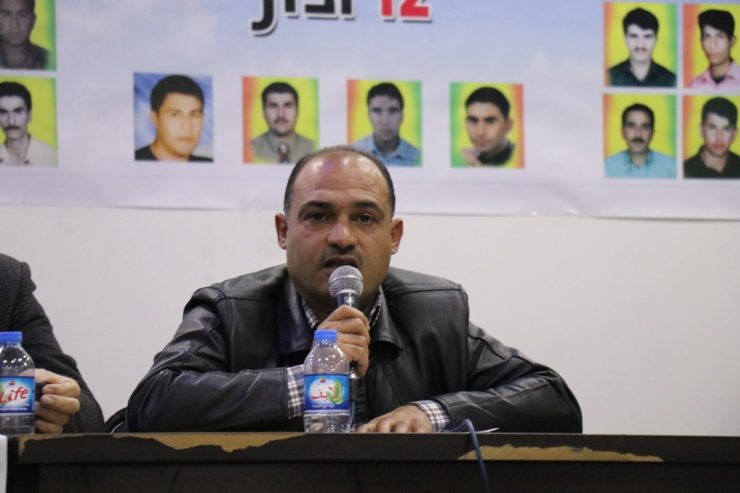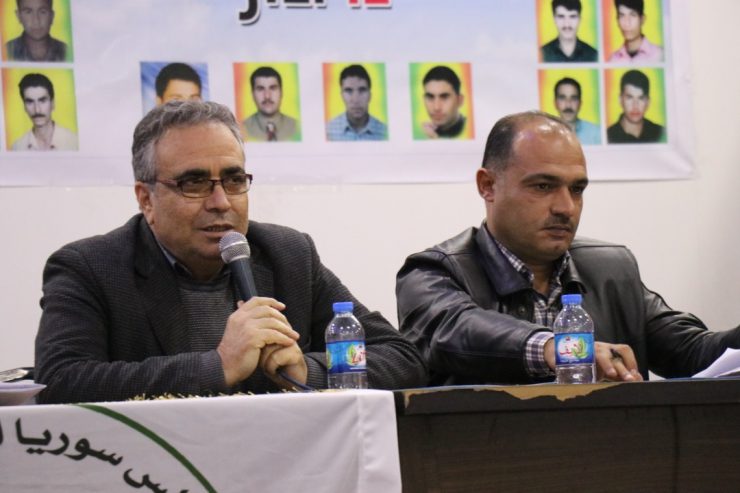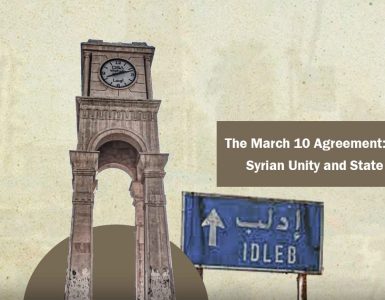On Sunday, March 13th, The Syrian Democratic Council called for a dialogue seminar entitled “The March 12th uprising and its role in the Syrian Revolution” at the Cultural Center in the city of Raqqa, attended by various figures including intellectuals, writers, poets, party members and representatives of the city’s departments and institutions.
The seminar was moderated the Deputy of the Co-presidency of the SDC, Luqman Ahmi and a member of the Executive Body, Thabet Al-Jawher, in addition to the leader and member of the presidential body of the Democratic Union Party (PYD) ,Saleh Muslim, who started his speech by talking about the March 12th uprising in Al-Qamishli in northeastern Syria in 2004 during a match in the stadium, the martyrdom of dozens and the arrest of thousands of Kurdish People, where the authority in Damascus wanted to create a sedition among the Kurdish and Arab components but it failed.
“The authorities in Damascus were surprised by the popular reaction in all regions of northern Syria, and we as dignitaries wanted to establish security and we were not affected by the sedition planned by the tyrannical regime, but the response of the components made authorities rethink again” Saleh Muslem said.
Muslim said that the connection between the Al-Qamishli uprising and the Syrian Revolution is the people were not afraid of power since 1963 and it was clear that the authority can be challenged, especially the Kurdish people were largely organized.
“The lesson we have learned was the spirit of resistance, the challenge of power, and (the organized people) who are the ones who have their Free Will, will win and hold accountable the monopolies of power, and this is the basis of the Autonomous Administration, which is our project that we are working to generalize,” Muslim said.
Speeches were also made by Haifa Mahmoud, the representative of the Democratic Party of modernity, and Luqman Ahmi, the Co-chairman of the Democratic Green Party, who spoke about the uprising as it revealed the truth of the authorities of tyranny and the state of coexistence enjoyed by the regions of northern and eastern Syria today.
The attendees participated by asking questions and participations that praised the Kurdish uprising in Syria and the Syrian Revolution, which expressed the aspirations of the Syrian people to achieve a unified, pluralistic, democratic and decentralized Syria.
